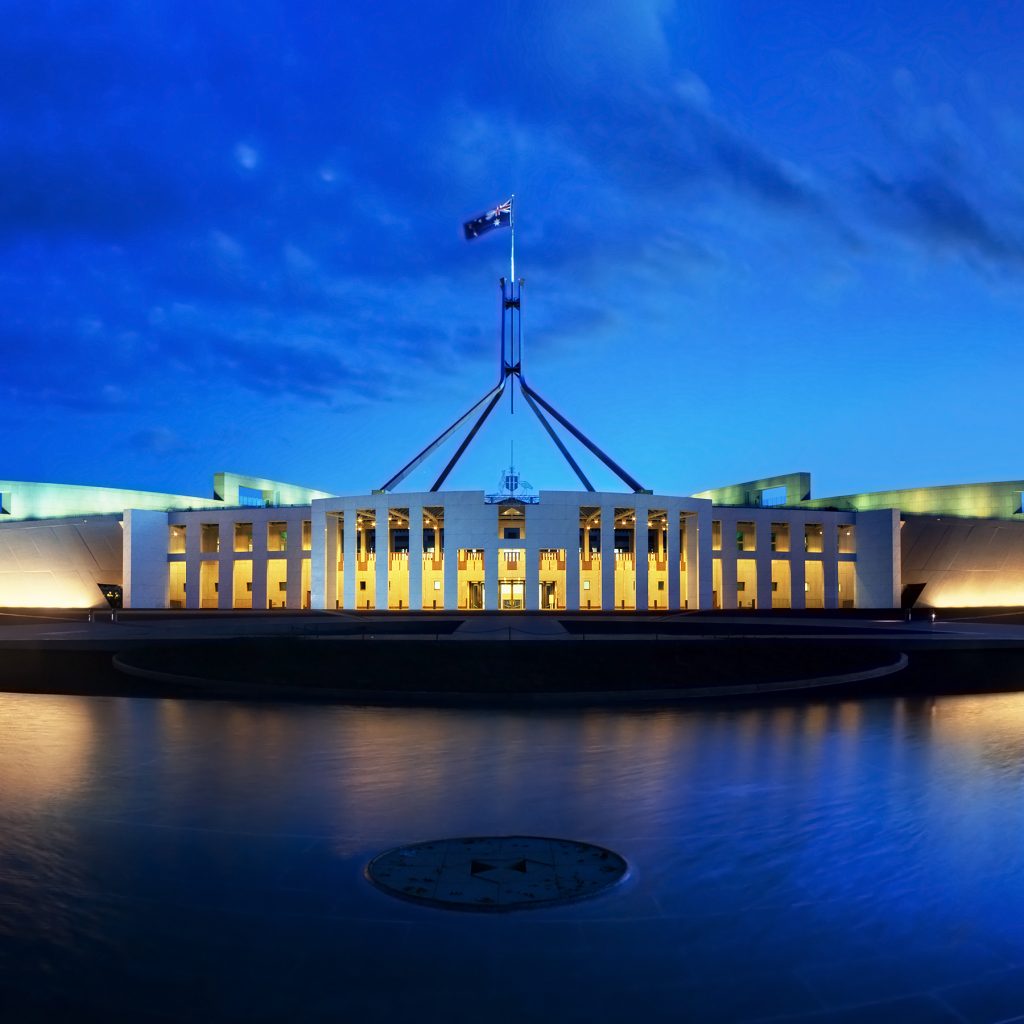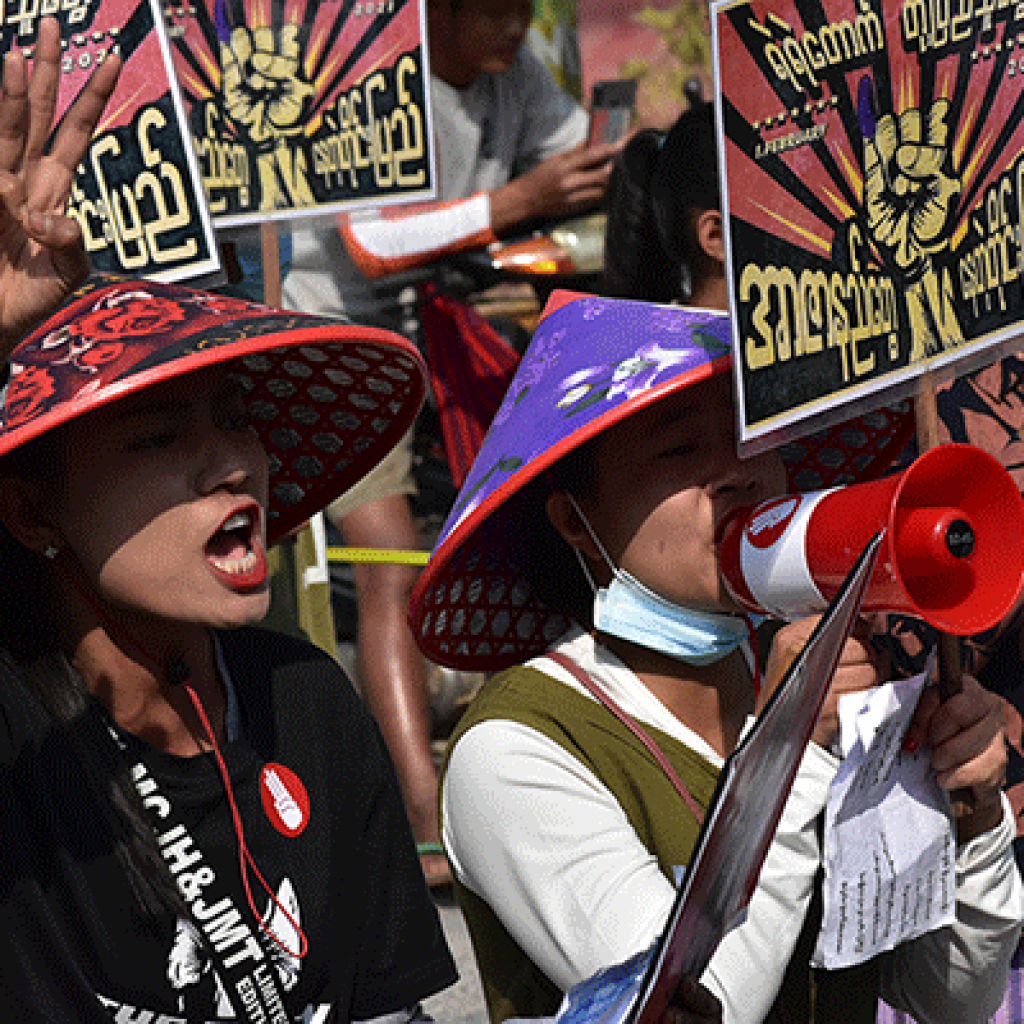
Statement to parliamentary hearing on Myanmar: Australia must do more
IWDA has joined Australian civil society organisations calling for the Australian Government to take further action against the military coup in Myanmar. Women’s rights activists are at the frontline of peaceful protests calling for a federal democracy in Myanmar. They are risking their lives for justice and peace, and the global community must stand with them.
On April 13, we shared evidence at an inquiry by the Joint Standing Committee on Foreign Affairs, Defence and Trade.
Here is the opening statement we delivered:
International Women’s Development Agency has partnered with women’s rights organisations from Myanmar since the mid-1980s. These organisations are now taking a leading role in protests against those attempting to deny Myanmar a democratic future.
In speaking today we aim to amplify their voices.
We would like to begin with a quote from a representative of our partner, Women’s League of Burma (WLB):
In the past two months, Burma has turned into a pool of blood.
The violence against peaceful protestors is deepening the wounds in our country that have formed during over 70 years of civil war.
Women’s rights activists are frightened. We are fearful for our safety and the safety of our families. We’re not sleeping in our homes at night – we change locations regularly. For myself, I walked through the forests of Karen State with my 2 year old daughter to reach a more secure location.
We are gravely concerned for the safety of the founder of WLB and Mizzima news, Thin Thing Aung, who was detained on 8 April. We are also mourning the death of the Director of Women for Justice, and our dear friend, Ah Khu. She was murdered by the military while protesting on 28 March.
This quote speaks to the gendered impacts of the coup. Our partners on the ground have observed that around 60% of protesters on the streets are women. They know keenly that extended military rule brings significant threats to women, particularly from ethnic minorities.
Women human rights defenders face direct threats to their physical safety. The Tatmadaw is using indiscriminate violence against peaceful protesters, including women, to try to terrorise civilians into submission.
Women and girls are now more vulnerable to sexual violence. There is a well-documented history of the Tatmadaw using sexual violence as a weapon of war, particularly against ethnic monitories. Our partner, Women’s League of Burma, has received reports of sexual assault against those women protestors who have been detained.
The gender equality gains made over the last decade are deteriorating. Australian aid contributed to these gains, including increased women’s political leadership. While a record number of women were elected to Parliament in November, these women are now largely in hiding.
Women’s rights organisations are also facing substantially increased military surveillance, reducing their ability to provide critical services, such as support to survivors of gender-based violence.
I will now turn to suggested actions. Australia should draw on its middle power status and leadership role in the region to support the women of Myanmar in their fight for safety and an inclusive, federal democracy.
Australia should urgently increase targeted sanctions, advocate for a global arms embargo and use diplomatic leverage to restore the democratically elected government and support a transition to an inclusive, federal democracy. The alternative is looking increasingly like deepening civil war.
There is significant support for these actions by the Australian public. With support from IWDA, a young woman in Myanmar launched a petition asking for these specific actions from Australia. In less than 6 days, 12,039 members of the public have signed the petition. We’d like to table that petition here today.
We would like to close with words from a representative from our partner, Shan Women’s Action Network (SWAN):
Our people are calling for the international community to urgently respond. Some countries are responding, adopting targeted sanctions, which is the most critical action that each individual country can take. We are waiting for the Australia Government to also stand with us and urgently limit the Tatmadaw’s access to funds. We have always considered Australia a supporter of human rights and have gratefully received Australian Aid in support of our work.
In the past I have never lost hope in international mechanisms to fight against this brutal regime. Today I am not so sure. I am starting to feel hopeless. However I keep breathing every day so I continue to dream that one day I will witness the fall of the military regime.
Thank you for the opportunity to contribute to these discussions on what actions Australia should take.


